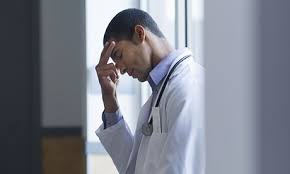The possibility of a substance abuse problem within the medical profession, even among physicians, is very real. Sometimes the problem is hard to detect as physicians will frequently try to hide their addiction to protect their medical license. Other times, depending on the severity of the addiction, warning signs will be obvious.
 Regardless, if there is so much as a minor suspicion, this can and should warrant an investigation. More and more within medical establishments, this is becoming the ethic, not because medical professionals are overwhelmingly suspect of substance abuse problems, but because their work has very high stakes. Any suspicion is critical when it is about someone who is medically responsible for others.
Regardless, if there is so much as a minor suspicion, this can and should warrant an investigation. More and more within medical establishments, this is becoming the ethic, not because medical professionals are overwhelmingly suspect of substance abuse problems, but because their work has very high stakes. Any suspicion is critical when it is about someone who is medically responsible for others.
And, as in any case of addiction, the sooner it is treated through rehabilitation, the safer the addict is. Because doctors are prone to hiding their addiction to protect their livelihood, by the time it is discovered within their profession, chances are it has already overcome the rest of their life. In the case of opioids and other dangerous substances, a severe addiction can have irreversible or even lethal effects. In light of this consideration, pursuing a minor suspicion is understandable.
The proper conduct for confronting a possible substance abuse case within the medical profession will be specified in writing by each individual practice. Organizational protocol is written based on the laws of the jurisdiction it operates within and should be accessible to all staff. This written clarification of conduct is important to the legal protection of the practice.